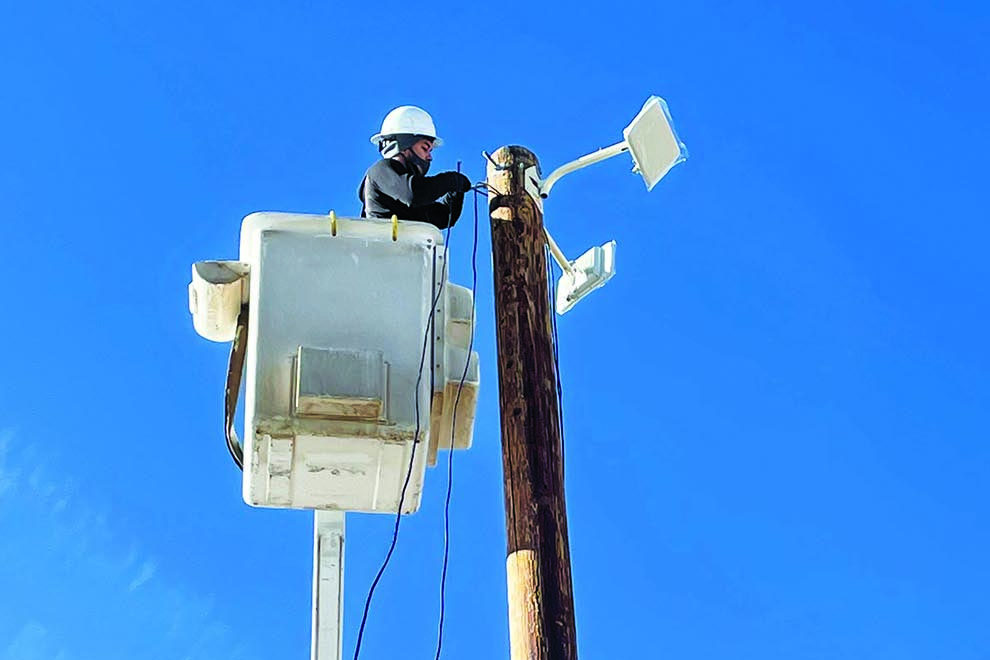
Century Mobile Home Park sits on the southern edge of Alamosa, Colorado, near the city’s regional airport. It’s an underserved area that has been in need of infrastructure upgrades for some time.
When the COVID-19 pandemic hit in early 2020 and schools went to online learning, kids there struggled with limited or no access to the internet.
As the virus surged in December and the park’s young residents faced continued academic difficulties, local school leaders made an urgent plea for help to an internet service provider and an electric cooperative.
“During the meeting, we were unable to come up with a definitive solution for the large trailer park, which houses many of our migrant and English-learner students,” said Marsha Cody, Alamosa School District’s interim superintendent. “About 10 days later, Monroe called with a solution.”
Monroe Johnson is chief technology officer for Ciello, the broadband arm of Monte Vista-based San Luis Valley Rural Electric Cooperative. After the school’s call, he drove to the neighborhood, which is outside the co-op’s territory. It was apparent that an infrastructure upgrade was necessary to provide adequate internet service to the homes.
After visiting with City of Alamosa IT Director James Belknap, Johnson learned that the city had a fiber-optic cable running nearby. By connecting that cable to a fiber line Ciello has to a nearby city facility, the co-op broadband crew was able to build a fiber-backed wireless system to serve the neighborhood.
The city helped by executing the required permits in one afternoon—a process that can sometimes take months—to allow the co-op to erect a temporary pole.
By late January, the network was up and running, making broadband available to approximately 60 homes through a point-to-multipoint solution. As families sign up, Ciello is installing antennas on mobile homes to receive signals from the new equipment on the nearby pole.
“We have had concerns about these kids, but now with COVID, we rolled up our sleeves and figured out a way to get this done,” said Loren Howard, general manager and CEO of San Luis Valley REC and Ciello.
In all, Ciello has hooked up more than 200 schoolchildren in need of broadband during the pandemic, he said. Ciello’s $1,200 allowable cost per installation meant these families had no upfront cost to connect.
“We pulled out all the stops when this hit and schools started to close,” Howard said.
While the school district will help Century Mobile Home Park families pay for broadband during the school year, the co-op is exploring how to support them when school is not in session. Howard envisions a program like REC’s Operation Roundup that helps low-income members pay their power bills.
“We are working to set up a nonprofit to help families struggling financially to pay for broadband,” he said. “We hope to set it up by summer.”
Cathy Cash is a staff writer at NRECA